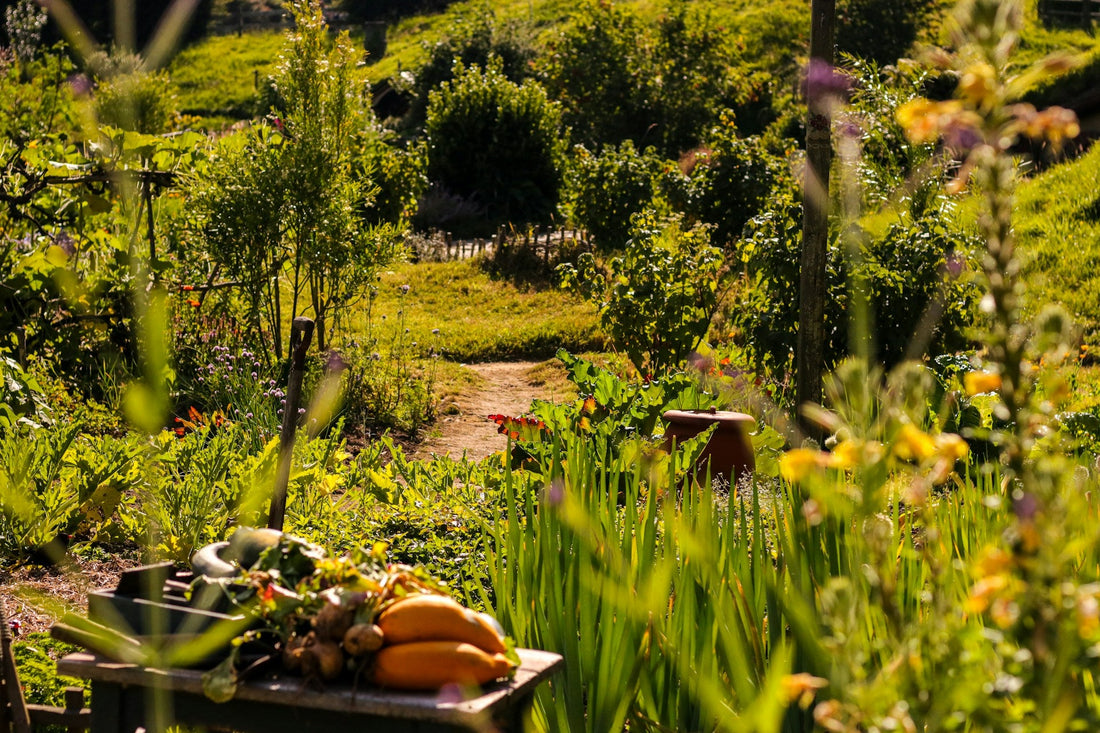
The Benefits of Organic Gardening: Why It’s Worth the Effort
Share
Organic gardening isn’t just a trend—it’s a lifestyle choice that benefits your health, the environment, and the overall vitality of your garden. Though it may require more thoughtful planning and care than conventional methods, the rewards are well worth it. Here’s why organic gardening is worth your time and effort.
1. Healthier Food
Growing fruits, vegetables, and herbs organically means avoiding synthetic fertilizers and pesticides. This results in produce that is:
-
Free from harmful chemicals that can affect your health.
-
Nutrient-rich with higher levels of vitamins, minerals, and antioxidants.
-
Better tasting, since plants grown naturally often have more robust flavors.
2. Safer for Pollinators and Wildlife
Organic gardens support biodiversity by providing safe habitats for bees, butterflies, birds, and beneficial insects. Pesticide-free gardens:
-
Reduce harm to pollinators essential for food production.
-
Encourage natural pest control through predators like ladybugs and birds.
-
Foster a balanced ecosystem that keeps your garden healthy.
3. Improved Soil Health
Organic gardening focuses on enriching the soil naturally rather than relying on chemicals. Techniques such as composting, crop rotation, and using cover crops:
-
Enhance soil fertility and structure.
-
Increase water retention, reducing the need for frequent watering.
-
Promote beneficial microorganisms that support plant growth.
4. Environmentally Friendly
By avoiding synthetic chemicals and fertilizers, organic gardening helps protect:
-
Water quality by reducing runoff that can pollute rivers and lakes.
-
Air quality, as fewer chemicals are released into the atmosphere.
-
Local ecosystems, maintaining biodiversity and natural habitats.
5. Cost Savings in the Long Run
Although organic gardening may require initial investment in compost, seeds, or natural amendments, it often saves money over time:
-
Reduced need for chemical fertilizers and pesticides.
-
Lower maintenance costs due to healthier, more resilient plants.
-
Homegrown produce reduces grocery bills.
6. Mental and Physical Health Benefits
Organic gardening is not just good for your environment—it’s good for you:
-
Physical exercise from planting, weeding, and harvesting.
-
Stress relief through connection with nature.
-
Satisfaction and mindfulness from growing your own food sustainably.
7. Promotes Sustainable Practices
Organic gardening encourages long-term sustainable habits, such as:
-
Composting kitchen waste and garden debris.
-
Reducing reliance on synthetic chemicals.
-
Choosing native plants adapted to your climate.
Final Thoughts
Organic gardening requires patience and care, but the benefits are undeniable. From healthier food and safer wildlife habitats to improved soil and environmental sustainability, the effort you put into an organic garden pays off in numerous ways. By embracing organic methods, you contribute to a healthier planet while enjoying a thriving, productive garden.
